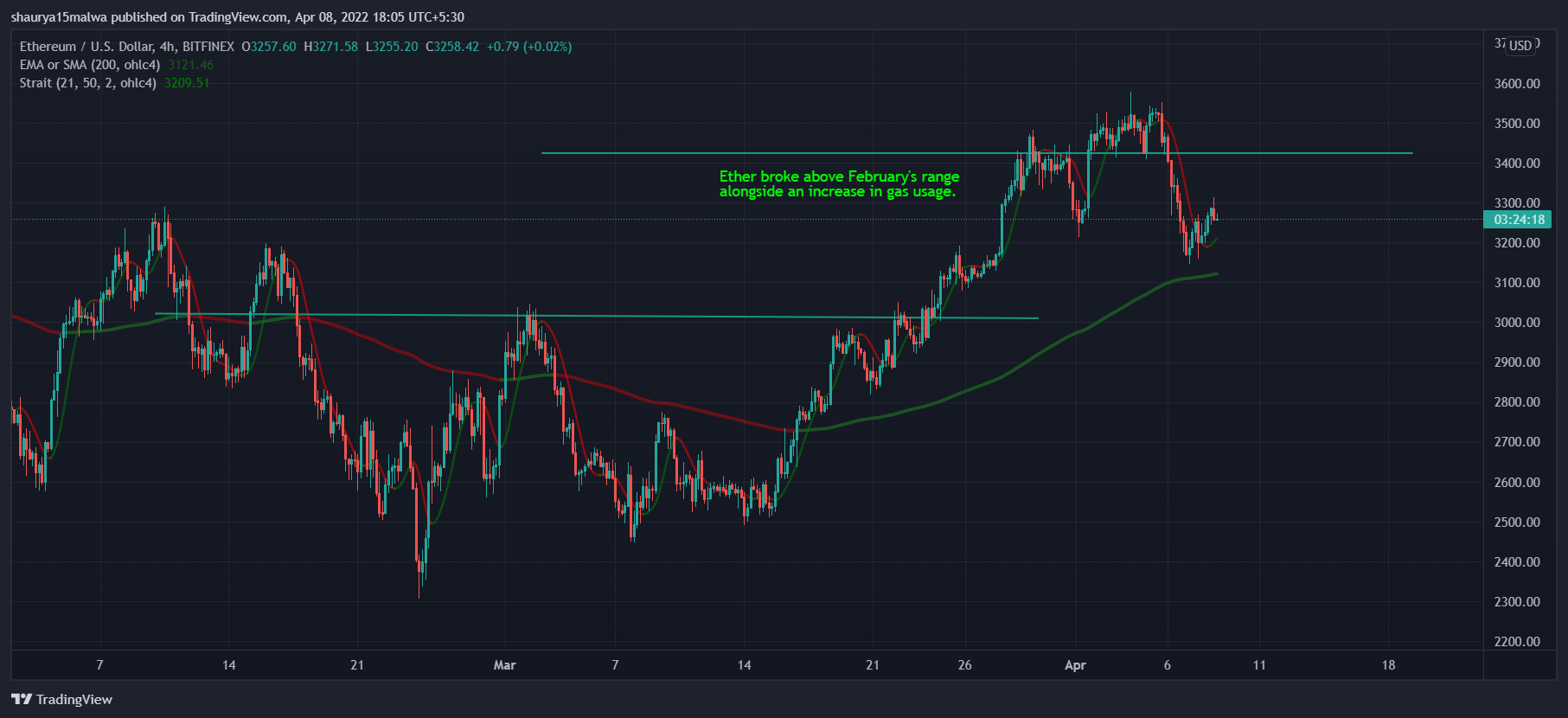Gas usage on Ethereum saw a 13% increase in March from the previous month amid greater demand for block space, according to DeFi analytics firm HashEx in a note shared with CoinDesk. That gas demand, said some market observers, played a role in pushing ether (ETH) above $3,500.
Some of the demand came from higher ERC-20 token generation and the rise of layer 2 applications, HashEx’s research found. Layer 2 refers to protocols that operate atop the Ethereum network, such as Arbitrum and Optimism.
Gas refers to the amount of ether – the native cryptocurrency of Ethereum – required for a user to interact with the network.
The gas fee varies and is determined by the miners depending on factors like supply and demand, the need for computing power to process smart contracts, the total number of transactions, and the overall complexity of calculations when performing smart contract functions.
Gas demand grows with ether prices
Ether prices reached over $3,500 in March alongside the rise in gas usage, breaking above $2,300-$3,200 range seen in February. Other catalysts for that run were a recovery in bitcoin prices – which led to a broader crypto market bounce – and a successful testnet merge ahead of Ethereum’s shift to a proof-of-stake consensus design.

Ether broke above February’s range to set yearly highs of over $3,500 last month. (TradingView)
Some analysts pointed out that high gas usage is a fundamentally positive sign, regardless of what ether prices do.
“Ethereum gas usage has increased in recent weeks,” noted Adam O’Neill, Chief Marketing Officer at crypto exchange Bitrue in a Telegram message. “This proves the high demand for Ethereum block space even as the market endures a bearish trend.”
Johnny Lyu, CEO of crypto exchange KuCoin, shared the sentiment: “Gas demand will grow along with the expansion of applications of the Ethereum blockchain, which will also increase the demand for ETH. This is a very typical supply-and-demand relationship.”
“Investors entered the accumulation stage from the second week of March and are watching the rise in prices of cryptocurrencies, so the cost of transactions at the end of March did not reach record levels, instead, only a correlation with the cost of Ethereum could be observed,” Lyu added in an email to CoinDesk.
Some of this demand came from token generation, which was roughly 125% above February’s levels. More demand came from the rising popularity of Ethereum Virtual Machines (EVMs) – compatible blockchains, such as the Avalanche Contract Chain (C-Chain), Fantom Opera and Polygon.
“There are a lot of new EVM-compatible chains popping up,” said HashEx founder Dmitry Mishunin. “Users are siphoned off into them because of the high gas commissions on Ethereum, and as a result, the number of users on the Ethereum network drops, and the gas price drops with it.”
Ether was trading at $3,254 at press time, with a total market capitalization of $391 billion.
